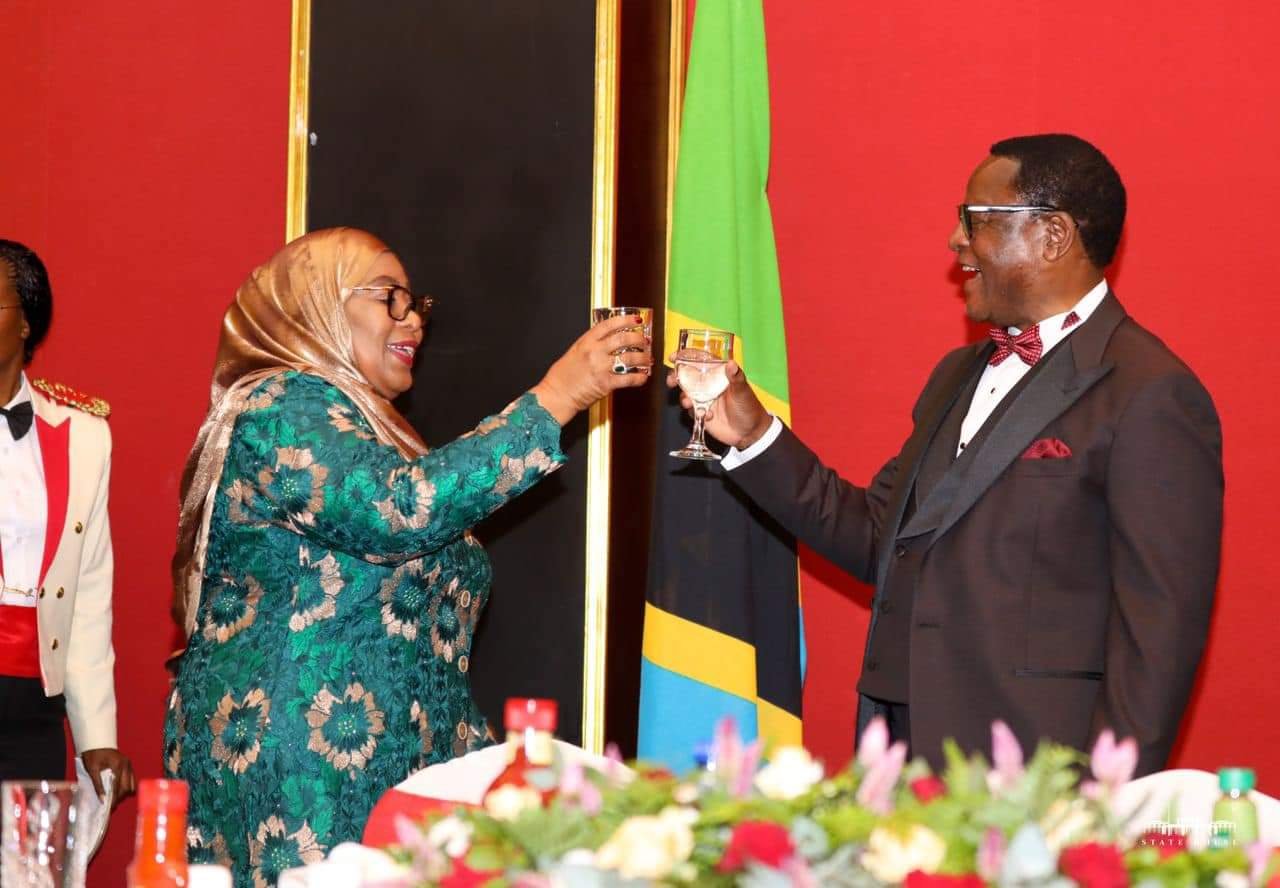By Chisomo Phiri
The Malawi and Tanzanian governments have committed to double their efforts in the fight against crossboarder crimes such as smuggling.
This comes as the two nations seek to promote trade activities for their economic growth.
Malawi President Dr. Lazarus Chakwera and his Tanzanian counterpart Samia Suluhu Hassan have also resolved to continue cooperating in other areas such as transport, mining and tourism.
The two leaders made the remarks last evening at Kamuzu Palace in Lilongwe where the Malawi leader organized a state banquet in honour of the Tanzanian president who is in the country for a three day state visit.

Chakwera applauded Hassan, and people of Tanzania for being first responders during Tropical Cyclone Freddy that hit hard the country early this year.
“I recalled how our brothers and sisters from Tanzania mobilised rescue resources and humanitarian aid for thousands of Malawian families inconvenienced by the disaster.
“I also remarked that Malawi and Tanzania must build on the existing mutual goodwill to enhance cooperation by implementing a number of key projects that will facilitate socioeconomic growth for both populations,” said Chakwera.
The President said he has pledged that Malawi will invest adequate resources to bring the much needed infrastructure connectedness with Tanzania such as inmcithe Mtwara Corridor, Chitipa-Ilomba Road, Songwe River Basin Project and the Songwe/Kasumulu One Stop Border Post (OSBP).
Concluded Chakwera:”In Tanzania, Malawi has a treasured neighbour with whom we must pursue common development goals.”
Suluhu is expected to be in the country for three days and she is today attending this year’s 59th independence day celebrations in Lilongwe.
Among other things, the Tanzanian leader is expected to hold several bilateral talks with President Dr.Chakwera and she is also planning to visit communities affected by the recent Tropical Cyclone Freddy which killed over 500 people in the southern region.



